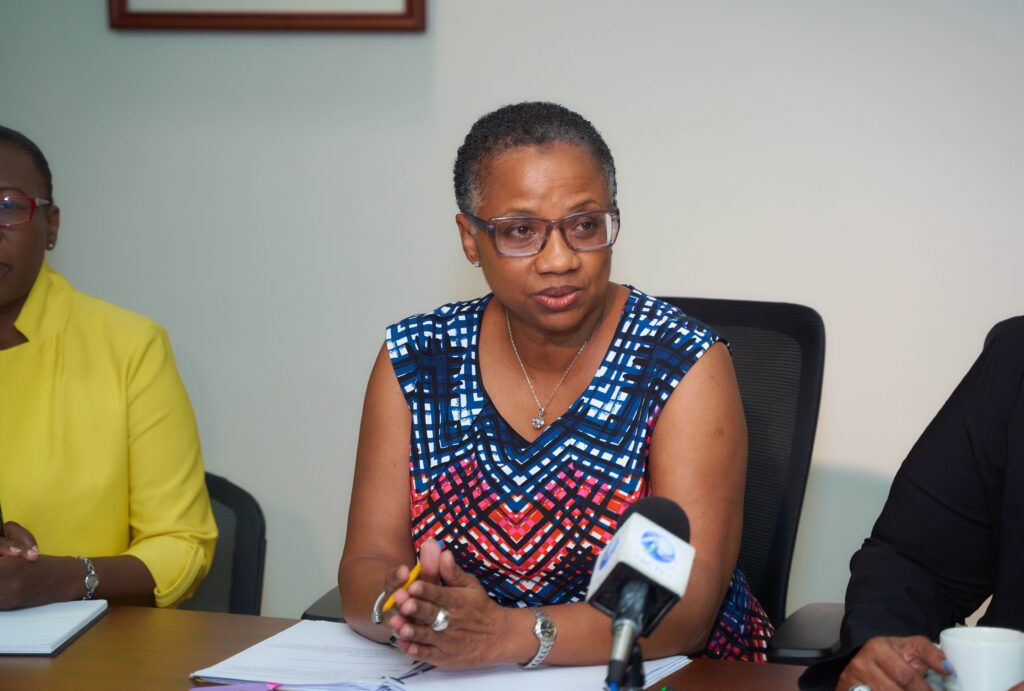“Technology can’t be overlooked, especially with its rapid advancement, transforming warfare through innovations like combat drones. These advancements introduce new challenges and opportunities in the field of defence.”
With these words, Guyana’s President Mohamed Irfaan Ali breathed life into what is likely the region’s first National Defence Institute (NDI).
The NDI, launched in Guyana, holds a broad mandate encompassing national security, including military strategy and tactics, with a key objective set by President Ali: to analyse gang movements and other transnational security threats. By addressing these cross-border challenges, the NDI underscores the need for regional cooperation, particularly in cyber defence and intelligence sharing. As the Caribbean faces increasing susceptibility to cyberattacks, the NDI is well-positioned to become a regional leader in cybersecurity preparedness.
The cybersecurity component of the institute’s mandate mirrors successful international initiatives, such as the UK’s Cyber Essentials programme. Launched in 2014, the programme underscores the importance of collaboration between governments and the private sector in safeguarding national digital infrastructure. Like the Cyber Essentials programme, the NDI aims to strengthen cybersecurity capabilities, focusing on common threats.
Both programmes emphasise the need for a unified defence framework that bridges physical and digital security. While Guyana’s NDI provides a platform for addressing emerging threats in the Caribbean, the UK’s Cyber Essentials demonstrates how a structured, government-backed approach can help secure both public and private sectors. This blend of international and regional efforts highlights a growing recognition that modern defence is as much about cybersecurity as it is about traditional military strength.
This government initiative, extending to the private sector, underscores the need for both to take a leading role in cybersecurity and national defence. While governments control physical entry by sea and air, the nation’s digital borders, primarily managed by private sector interests, pose unique challenges. This highlights the urgent need for public-private collaboration to safeguard national security in an increasingly digital world.
The UK government’s Cyber Essentials programme is a certification scheme designed to help organisations defend against common cyberthreats. Launched in 2014, the scheme is managed by the National Cyber Security Centre (NCS) in partnership with the IASME Consortium, offering practical guidance for businesses to implement essential cybersecurity controls. Its objectives include:
Raising Cybersecurity Standards: Targeting SMEs, the scheme aims to elevate baseline cybersecurity practices across sectors with limited resources.
Preventing Common Cyber Attacks: Designed to block up to 80 per cent of frequent Internet-based threats, such as phishing, malware, and ransomware.
Supporting Business Growth: By fostering better cybersecurity practices, it builds trust, enabling safer e-commerce and digital transformation.
Aligning with Government Contracts: The programme helps businesses meet the cybersecurity requirements for specific government contracts involving sensitive data.
Programmes like these exemplify how collaboration between the public and private sectors can significantly bolster national cybersecurity and enhance business confidence in the digital space. These programmes, while distinct, provide a framework for what is urgently needed in Barbados and maybe the rest of the Eastern Caribbean—a cybersecurity strategy that adopts a best-in-class approach, with both government and private sector sharing responsibility for national digital security.
It is regrettable that Barbados still lacks a dedicated Cybersecurity Czar or a published cybersecurity plan, especially given that digital transformation is central to the nation’s growth trajectory. Adequate digital security is not just a supporting factor—it is essential. A focal point for cybersecurity is no longer a luxury but a necessity, providing accountability and ensuring that the nation is well-informed about the ever-evolving cyber threat landscape. Without strong leadership and a clear strategy, Barbados risks falling behind in the fight against cyber threats. Establishing a coordinated approach is crucial as we work to strengthen our collective cybersecurity defences.
In a region where resources to address the rapidly evolving global cyber landscape are limited, the NDI could play a pivotal role in addressing regional cybersecurity challenges. The NDI offers a valuable opportunity for Caribbean governments to collaborate and leverage its expertise, particularly considering Guyana’s recent tensions with Venezuela—a conflict that first emerged through provocative social media posts, introducing a new dimension to national sovereignty. Venezuelan government supporters used social media to spread propaganda, escalating an already tense situation. This incident marked a turning point for cybersecurity in the Caribbean, where cyberthreats have traditionally been financially motivated rather than state-sponsored. Guyana’s experience uniquely positions it to both strengthen its cybersecurity strategies and become a regional leader. The NDI can be that centre of excellence, fostering collaboration and enhancing regional cybersecurity preparedness.
With initiatives like the national digital ID and electronic healthcare records on the horizon, Barbados cannot afford to remain vulnerable. Just as a Commissioner of Police protects physical security, a dedicated cybersecurity leader is essential to safeguard the nation’s digital infrastructure.
Steven Williams is the executive director of Sunisle Technology Solutions and the principal consultant at Data Privacy and Management Advisory Services. He is a former IT advisor to the Government’s Law Review Commission, focusing on the draft Cybercrime bill. He holds an MBA from the University of Durham and is certified as a chief information security officer by the EC Council and as a data protection officer by the Professional Evaluation and Certification Board (PECB). Steven can be reached at: Mobile: 246-233-0090; Email: steven@dataprivacy.bb
The post Strengthening Cybersecurity: Lessons from Guyana’s Defence Initiative appeared first on Barbados Today.


